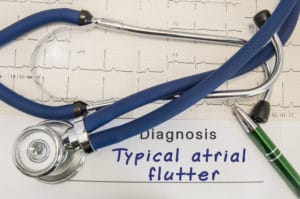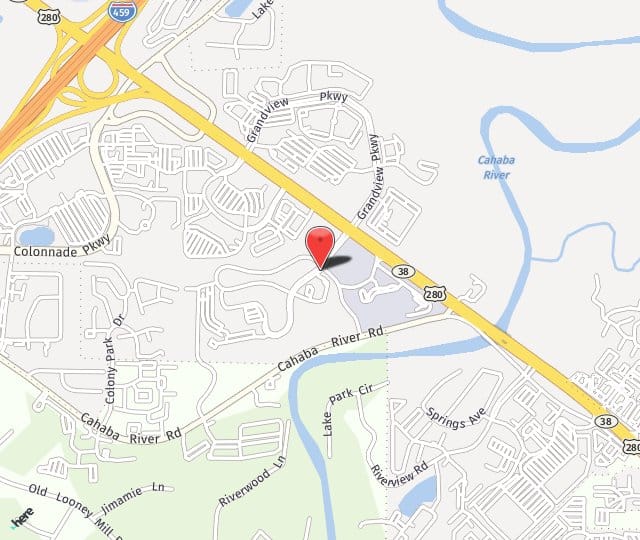
What is atrial flutter?
Atrial flutter occurs when an abnormal conduction circuit develops inside the right atrium. When this happens, it allows that right atrium to beat very fast, around 300 beats per minute. At the same time the lower chamber of the heart, the ventricles, beat at a slower rate of around 75 to 100 beats per minute.
This type of rhythm is called tachycardia. In atrial flutter, it is more specifically known as supraventricular (above the ventricles) tachycardia.
What is dangerous about atrial flutter?
The problem with the heart when it beats too quickly is that is doesn’t pump blood as well. You could equate this metaphorically to pumping a bellows when stoking a fire. If you pump it very quickly, the bursts are smaller and uneven. When you pump it fully, yet at a slower rate, the airflow is strong and even.
This ineffective blood flow moves the blood more slowly. This is a prime recipe for blood clot formation, and these clots can travel to the brain and lead to a stroke. Vital organs such as the brain and the heart muscle may not get enough blood, due to this uneven pumping. This can lead to congestive heart failure, heart attack, and stroke.
Who gets atrial flutter?
Atrial flutter occurs most commonly in elderly patients. People with high blood pressure, as well as heart disease or congenital heart abnormalities, are more prone to developing atrial flutter. Atrial flutter can come and go. This is known as paroxysmal atrial flutter. Less frequently, the condition is almost permanent.
Symptoms of atrial flutter
- Palpitations
- A fluttering or tremor-like feeling in the chest
- Shortness of breath
- Anxiety
For those with heart or lung disease, these more significant symptoms can occur:
- Chest pains
- Feeling faint or light-headed
- Fainting
Treating atrial flutter
Dr. Smith treats atrial flutter with various types of medications, as well as catheter ablation. This cures the problem for most people.
Do you have any symptoms of atrial flutter? If so, please call Dr. Smith at (205) 510-5000 to make an appointment to check it out.

